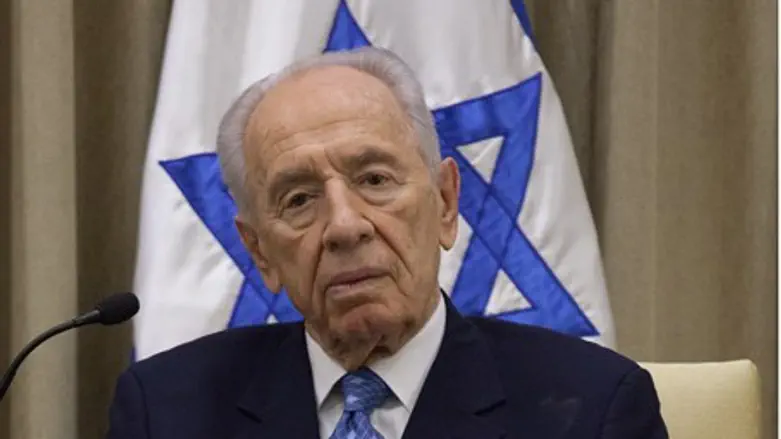
Israeli President Shimon Peres rejected theories that former Palestinian Authority Chairman Yasser Arafat was poisoned, telling a Mexican newspaper Tuesday that any assassin would have found it easier to shoot the Palestinian leader.
Swiss scientists recently have found that lab test results "moderately" backed the idea that Arafat died of polonium poisoning in 2004.
Those findings rekindled conspiracy theories, common in the Arab world, that Arafat was in fact assassinated by Israel - claims which have been repeatedly denied by Israeli officials
The findings have been viewed with skepticism in some parts though, due to revelations that Arafat's former wife was funding the investigation, along with the Palestinian Authority itself. Other experts have poured doubt on the findings themselves, saying that if polonium had been used to kill Arafat it would have decomposed long ago.
Current Palestinian Authority Chairman Mahmoud Abbas called last week for an international inquiry to decide who was responsible for Arafat's death.
But in an interview with Excelsior newspaper ahead of a visit to Mexico, Peres voiced his own doubts over the theory.
"I don't believe it," he said, "If someone had wanted to get rid of Arafat, it would have been easier to do it with a bullet."
Peres shared the 1994 Nobel Peace Prize with Arafat and Israeli prime minister Yitzhak Rabin after signing the failed Oslo peace accords. Rabin was assassinated by a Jewish extremist in 1995.
Visiting Mexico with an 80-strong Israeli business delegation, Peres will hold talks with President Enrique Pena Nieto on Wednesday before meeting with the world's second richest man, telecommunications tycoon Carlos Slim.
On Thursday, Peres will inaugurate the Mexico-Israel Economic Forum and deliver a speech to the Senate.
He heads to the western city of Guadalajara on Friday to attend an international book fair where Israel is the guest of honor. He leaves Mexico on Sunday.
Israel's invitation to the biggest book fair in the Spanish-speaking world was criticized by a group of leftist intellectuals, who demanded that Palestinian Arab leaders be invited to the next event.
